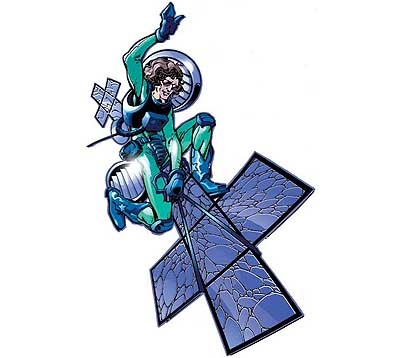S&V's Fantastic Four Page 3

by Ken C. Pohlmann
Far beyond experimental, but not yet quite mainstream, lies satellite radio. S&V readers know all about Sirius and XM, rival companies each offering well over 100 satellite-relayed channels of music, talk, sports, comedy, weather, and traffic on a subscription basis. But the general public, still tuned to terrestrial AM and FM, is probably not overly familiar with those outer-space birds, or the cool earthside receivers that hear them. With Howard Stern switching from terrestrial radio to Sirius, and potentially bringing a few million listeners along for the ride, public awareness of satellite radio is poised for a major blastoff.
THE TREND Back in 2001-2002, when their business plans were laid, Sirius and XM probably listed their chief competitors as terrestrial radio, CDs, and, of course, each other. Fast forward a few years, and an entirely new class of competitor emerges: MP3 players. Led by the iconic iPod, we can now choose between Sirius or XM channels playing music picked by someone else or a player filled with favorite music we've ripped or downloaded to it. If a player holds only ten songs, then radio is clearly more entertaining. But when a player holds thousands or tens of thousands of songs, music broadcasts are less impressive. That essential fact will drive the future of satellite radio.
WHY IT MATTERS The success of Sirius and XM could largely ride on their ability to compete against, and co-exist with, MP3 players and downloading. Reading the handwriting on the wall, both companies are shrewdly forming strategic partnerships and developing receivers that are also MP3 players. The benefactors of that union will, of course, be us. A radio/player that holds your library of favorites and introduces you to new artists and songs is clearly the best of both worlds. Throw in a few extra perks, like the ability to mark songs to buy later, and you have a radio that's firmly plugged into the mainstream's preferences.
THE GEAR Both Sirius and XM have long offered receivers. Most of them are aimed at the car market, but a variety of adapters let you also operate them at home, and Yamaha, Pioneer, and Onkyo now offer surround receivers that can get XM broadcasts (you need a $50 XM Connect & Play accessory). More interesting are the newer, hybrid products. Several companies make XM2go portable receivers (Delphi's model was reviewed in February/March 2005, Pioneer and Tao's in January 2006) that not only pull in XM broadcasts but can also save 5 hours of broadcast programming for convenient playback when your commuter train is underground. XM has also partnered with Samsung to offer portable MP3 players with XM radio capability. They'll be able to store XM programming as well as songs ported from a computer's personal music collection. And you can use the XM+Napster service to mark songs for future purchase and downloading to the player.
On the Sirius side, the newest receiver is the intriguing S50 (see review). It's a two-piece media player/docking station that can store 50 hours of broadcast programs or your MP3 and WMA files. The S50 also has the TiVo-like ability to buffer up to 1 hour of the channel you're listening to, so you can pause and rewind at your leisure. Also, when you detach the media player, it becomes fully portable and can play stored broadcasts or your own music files (though it can't receive live Sirius broadcasts).
THE FUTURE By itself, satellite radio is pretty impressive. Over 2 million Sirius and about 5 million XM subscribers are more than happy with the diverse programming offered by each service. But many of us want even more selectivity and personalization. We want playlists. Sirius and XM recognize that whether the stored music comes from broadcasts or your computer, they need to offer a way to create playlists. So new receivers will bulk up on storage. And don't be surprised to see an XM/MP3 or Sirius/MP3 cellphone someday soon.
Finally, Sirius and XM haven't forgotten the old marketing adage: Give away the razor and sell the blades. Both make money from subscriptions and routinely cut receiver prices to the bone with aggressive rebates. Now fast forward to a satellite-radio/MP3 cellphone that's free when you sign up for both wireless services. How cool would that be?




























































